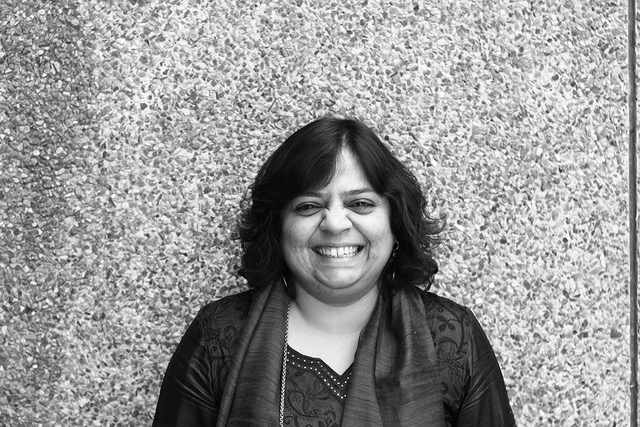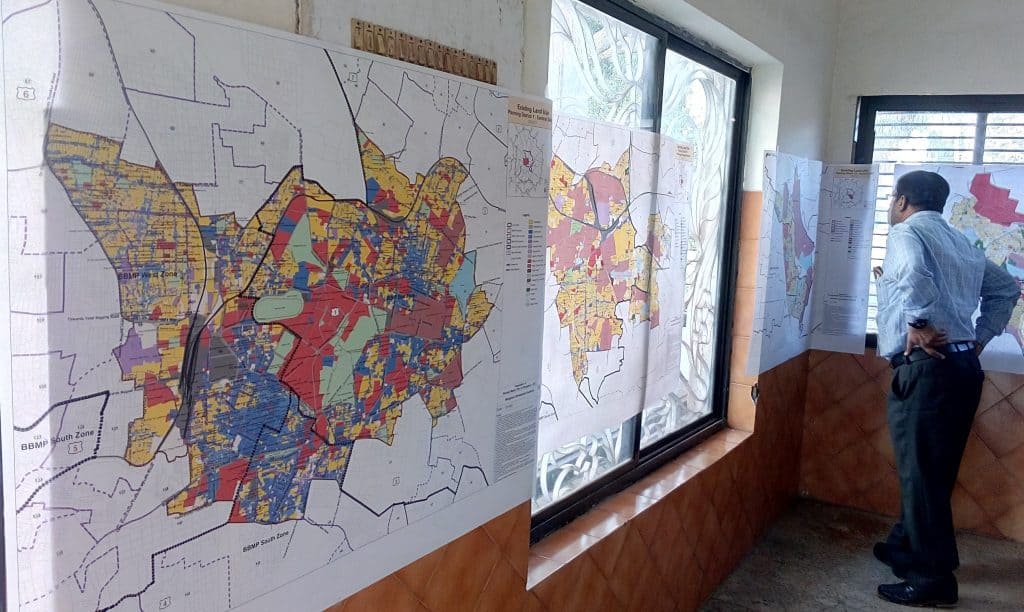The recently elected state government, along with BBMP and BDA officials, has been busy trying to ‘fix’ Bengaluru’s issues. The measures include reinstating BBMP’s re-structuring committee and initiating the Brand Bengaluru committee. Activists have criticised such committees as elitist and have called for more democratic urban planning. But how can we devise an inclusive, equitable plan for Bengaluru?
Neha Sami, Associate Dean, School of Environment and Sustainability, at the Indian Institute for Human Settlements (IIHS), attempts to answer this question.
Neha is a researcher with a background in urban planning and environmental governance. Her research broadly focuses on governance in Indian cities, including Bengaluru, and how it shapes mega projects and climate change adaptations.
Her work has documented how different urban stakeholders use their personal and social networks to shape development projects. Her writing on some of these issues has been published in the Economic and Political Weekly, the International Journal for Urban and Regional Research and Land Use Policy, as well as through contributions to several edited volumes.
In this first of a two part interview, Neha shares her observations on how broad-based public consultation can ensure that Bengaluru is planned for all its citizens.

CM: We are interested in understanding how planning has been working in the city. And I know that the issues are often similar across Indian cities…
NS: It is not similar. A lot of Indian cities have been unable to plan successfully but Bengaluru is unique in the kind of troubles it has faced during its planning journey. The city hasn’t had an approved plan for almost 15 years.
This has meant that it has grown piece by piece. And you see this in how neighbourhood development ends up. For instance, land use is decided, and individual plots are sanctioned in conformance with some imagination of the plan.
A lot of this boils down to the lack of application and implementation of the 74th Amendment. There have been multiple attempts to interpret the amendment and to figure out what the city should be doing. With the passage of the 74th Amendment, the ability to make plans should have passed on to the BBMP, which is the elected body, along with ward committees.
Read more: Why Bengaluru’s planning process is against the spirit of our Constitution
Local government must be restructured
Therefore, since the passage of the 74th Amendment, every time a plan was made by the BDA, there was opposition to it. Rightly so, because the argument was that the BDA is not the legitimate authority. But it is very difficult to do away with legacy institutions and these sorts of power structures. [Editor’s note: According to many activists and urban planners, city masterplans should be made by the Metropolitan Planning Committee, which comprises elected city council members].
So, the BDA, which is quite powerful, still controls a lot of land use functions, planning, sanctions, etc. Until that entire structure is rethought, it is hard to fix the planning process. Because it is about who does the planning and then who implements it.
Moreover, we haven’t had BBMP elections for three years. No one knows when the next round of elections is going to be held, though the government says they will announce it soon. And I hope they do. But even after that, the BBMP itself has no teeth.
Other cities
I don’t know of too many other cities in the country that are in this kind of situation. Mumbai has a contested plan, and Delhi’s plan has been criticised but the plans are there. And if you look at the Main Bhi Dilli campaign, they are bringing multiple stakeholders together, which is not an easy process. [Editor’s note: Main Bhi Dill campaign is a people’s campaign started in 2019. It involves NGOs, activists and researchers attempting to engage citizens in the process of the finalisation of the new master plan of Delhi.]
Consensus and compromise are difficult. But there is value in this broad-based consultation process that has been kicked off in Delhi. It is possible, of course, because Delhi is a city-state. It is possibly easier to do a lot of these things when you don’t have to live with the entire machinery of a larger state. That said, it is not impossible to do broad-based consultation and planning. There just needs to be the political will to implement it.
CM: With this context in mind, how do you see the Brand Bengaluru initiative? Ostensibly, there is some effort right to seek public consensus through feedback on the website, a WhatsApp number and meetings with RWAs. But a lot of other people are not even clear about what it means. Do such committees become exclusive?
NS: It is not fair to pass judgment on how this committee is working because it is so new. But, historically, I think the problem with public consultation, not just in Bengaluru but in general, is access. It is a question of awareness and of opportunity cost in some way. For example, if public consultations are going to be held only in government offices in the centre of the city and in the middle of the working day then it automatically excludes a lot of people. What needs to be examined is how information is circulated.
Read more: Bengaluru’s committees and vision groups prioritise elite aspirations: Prof. KC Smitha
Clearly, nobody is really going out of their way to communicate this information [about public consultations]. If we had active ward committees or municipal councillors, it could filter down through that. Each municipal council or ward committee could hold meetings in their ward, and the information would then be sent to the government through there.
Public consultation should be broad-based
WhatsApp is a bit better. But committees or websites automatically privilege a certain set of people who are able to interact using those mechanisms. Those who don’t have access to a computer or are not able to understand the language can struggle.
The public consultation process has to be broad-based. You have to take it to different parts of the city. You can’t just hold it in central Bengaluru or Town Hall or BDA and then say everybody come to us. A lot of people in the city are wage labourers, like street vendors or people who work in semi-formal or informal economies, and cannot take time off in the middle of the day.
Sometimes, they are the most affected by planning, which decides where they can vend, whether their small-scale manufacturing industry will be relocated or where transit lines will go. And you don’t end up taking their opinions into account because they are not able to access participation in a particular way. So, we need to think a little bit more about different ways and how to use technology to filter back recommendations.
CM: Basically, there has to be a better flow of information from city planners to the public…
NS: Yes, Masterplans are quite technical. Not everyone knows how to read the plan document. We [IIHS] have run workshops with a whole range of urban activists to help them understand what the plan document says and its implications. We have done that because some people have asked for it. Unless you make the effort to break these down and explain to people what it means to their lives, the public consultation process is not very useful.
What also often ends up happening is that you privilege a certain set of voices, for example, the RWAs. But poorer residents in the neighbourhood may not be part of these RWAs or may not feel welcome there.
Next, if you don’t explain the basis of the plan itself, it is going to be hard for someone to respond to it. Most people end up saying, “well, my power doesn’t work” or “my water doesn’t work” or “there’s a lot of traffic.” But if you don’t know what that plan says, it is very difficult to connect that unpleasant experience to the plan document itself. You need someone to translate that as part of the public consultation process to a wider set of people.

Citizens must understand the constraints
And I genuinely think from our side, as citizens, we need to have a certain amount of respect for what the government is doing because they are trying. It is unfortunate, that we see the citizen-government relationship as being quite antagonistic, where they are seen as just corrupt or lacking in knowledge.
So, you will see citizens who have seen other parts of the world or lived elsewhere will say why can’t you be like Singapore or Hong Kong? Those examples immediately come up. But then look at the kinds of resources that Singapore has; I mean it is a city state.
I think it is patronising for citizens to assume that people in government are incompetent or don’t have the knowledge. They do, but they work within severe constraints and bottlenecks. They need capacity building, training, and adequate resources. And then we blame them for not being able to implement a lot of these things. There are not enough planners for a city of this scale. It is an unfair ask. So, to me, that is a separate kind of capacity question that we need to deal with.
Overall, it is worth thinking a little bit about how we structure the consultation process itself and not limit it to just one sort of platform or committee. That kind of thing is fine after you have had several meetings with the public to explain to them what the implications are and what is being sought from them.